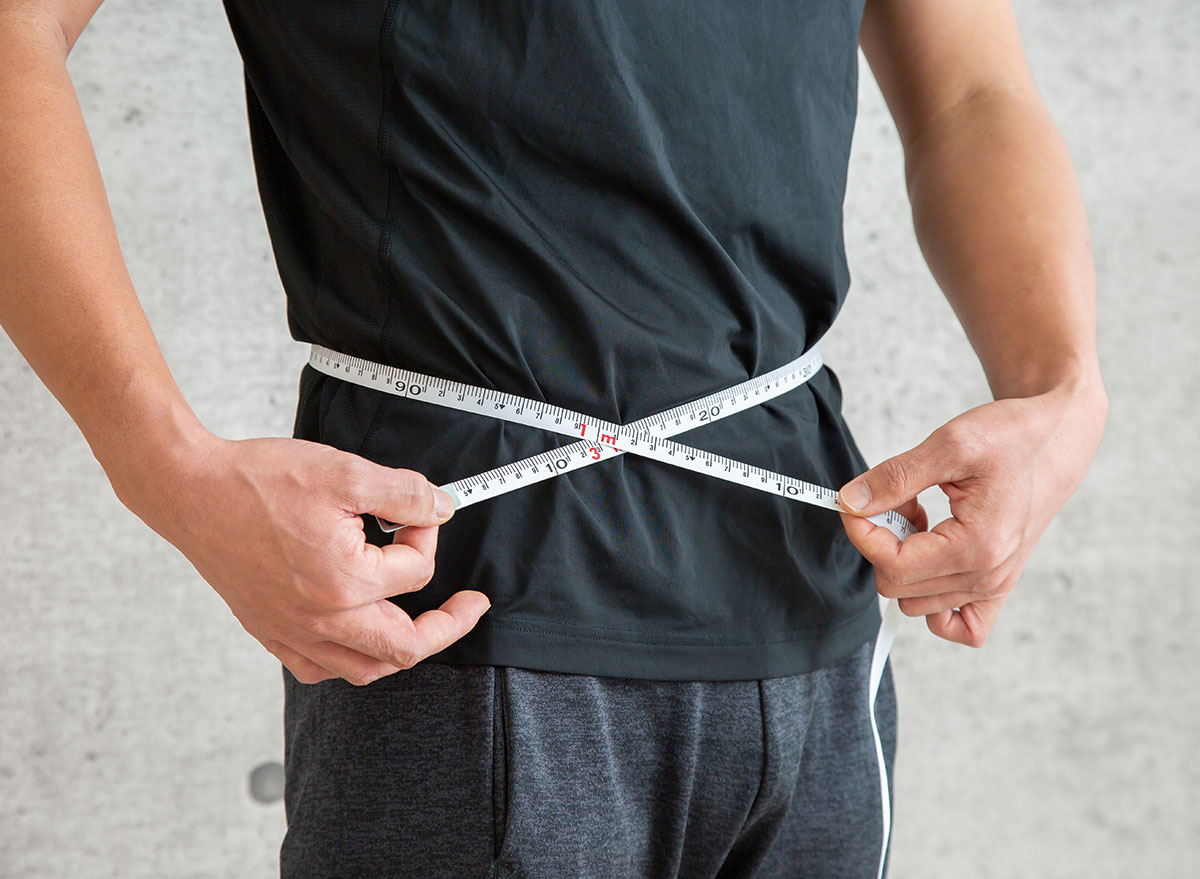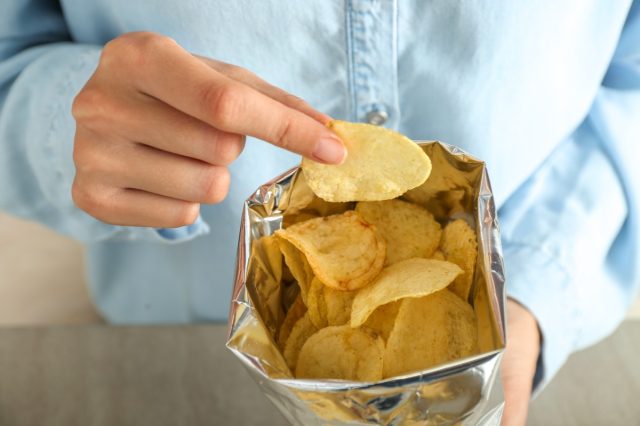The Worst Eating Habit for Losing Weight As You Age, Says New Report

When people believe age-related weight gain is inevitable, they tend to turn to comfort food, which often leads them to turn that belief into reality, according to a new report in the International Journal of Environmental Research.
Researchers interviewed eight men between the ages of 35 and 58, asking about their relationships with food and diet, as well as their thoughts on why they may have gained weight. They were also asked whether they were concerned about their health, if they’d made previous attempts to lose weight, and how they felt about being overweight or having obesity.
Related: Eating Habits to Lose Abdominal Fat As You Age, Say Dietitians
These discussions often revealed discouragement about their weight and a loss of self-esteem, especially if they’d been a lower weight when younger. This attitude caused many to turn toward high-calorie comfort food, which caused even more weight gain. However, that wasn’t the only habit that proved problematic, according to the study’s lead author Mark Cortnage, PhD, senior lecturer at Anglia Ruskin University in the U.K.

“Although they often mentioned comfort eating, participants also showed poor awareness of other factors that cause weight gain,” he says in a statement. “Many men would benefit from an education around food, such as food selection, integration of diet, and sustainable weight management practices, as a way to develop a more complete understanding of the relationships between food and lifestyle.”
Although the recent study focused only on men, many women also tend to believe that weight gain is inevitable when aging, and that might cause them to turn toward comfort food as well, even though research suggests that metabolism stays steadier for much longer than previously thought.
The study was also limited by its small sample size, but this perception tends to be widespread, according to trainer Ronnie Lubischer, CSCS, who often works with older adults.
“What I see most is sheer mental frustration and a feeling that they’re personally failing if weight begins to creep on as they get older,” he tells Eat This, Not That! “Instead of feeling discouraged, a better approach is to see this time as an opportunity to reset your health, including your eating habits, to support yourself for decades to come. That’s more important than focusing only on weight loss.”
In addition to a different mindset, Lubischer suggests men and women do strength training to build muscle mass, focus on sleep quality, and reduce stress since feeling overwhelmed has been associated with increased accumulation of belly fat.
He also advises talking to a dietitian who can help you develop the best strategy for healthy eating. Most of all, remember that even if you don’t lose weight, changing your body composition can go a long way toward better health, which means increasing your muscle mass and lowering body fat—even if the number on the scale doesn’t budge.









